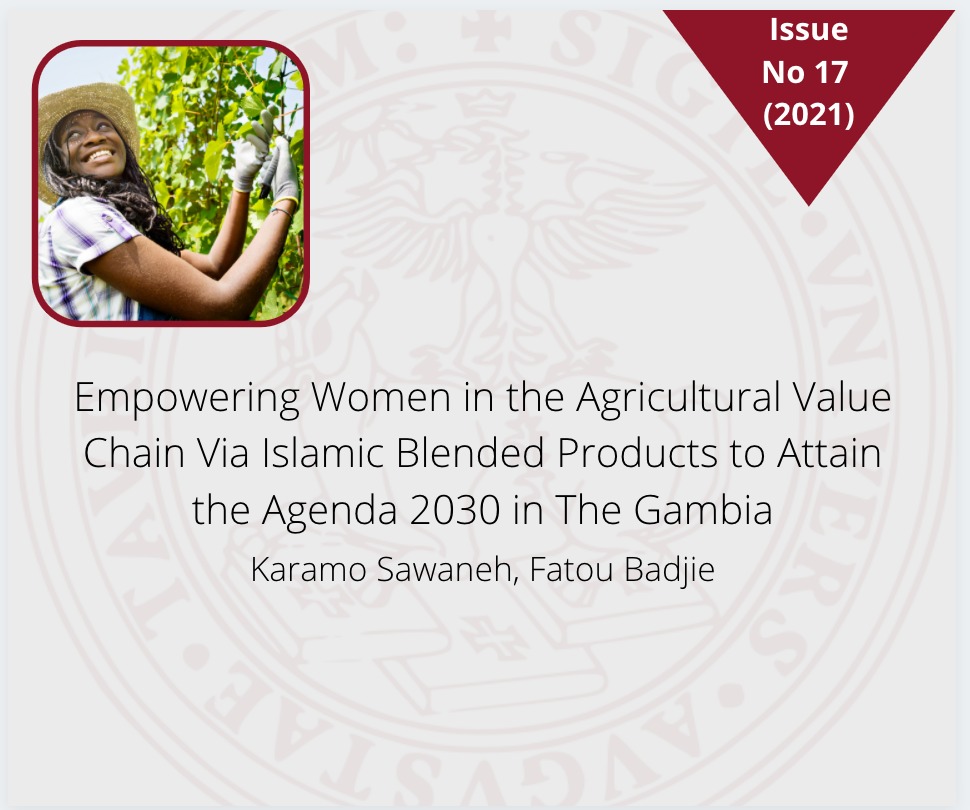Empowering Women in the Agricultural Value Chain Via Islamic Blended Products to Attain the Agenda 2030 in The Gambia
DOI:
https://doi.org/10.13135/2421-2172/5056Abstract
The importance of gender equality and women empowerment has become the central piece in numerous development agenda around the globe. In the Gambia, as part of the national development agenda, the government has eye marked key priority areas to champion the course of women empowerment. In addition, the government has enacted laws and ratified several other international goals including the Agenda 2030 to support this course. However, women entrepreneurs especially those in the agriculture value chain have faced numerous financial management challenges in conducting business activities. On one hand bank loans are expensive for them, and other the other hand those with surplus got minimal returns on their savings and investments. Thus, this paper aims to deliver the intended outcome of Maqasid Al Shariah by harnessing Islamic social financing and utilizing funds from the surplus side to provide sustainable and impactful financing for women on the deficit side via Islamic Blended finance. In addition to de-risking investment towards women empowerment, our proposed model offers a better return for those on the supply side and cheaper rate for those on the demand side by minimizing intermediation and transaction cost. It is anticipated that this paper will contribute to the achievement of the 2030 Agenda in The Gambia and also has the potential to be replicated in other developing countries.

Downloads
Published
How to Cite
Issue
Section
License
EJIF content is licensed under a Creative Commons Attribution 4.0 International License.
Authors keep the copyrights for their work and give the journal the work's first publication copyright, which is at the same time licensed under a Creative Commons License – Attribution, which in turn allows other parties to share the work with an acknowledgement of the work's authorship and initial publication in this journal.


 EJIF has been approved for inclusion in
EJIF has been approved for inclusion in  EJIF is a member of
EJIF is a member of  EJIF is indexed by
EJIF is indexed by  EJIF is listed in the ANVUR (Italian National Agency for the Evaluation of Universities and Research Institutes) as a scientific journal
EJIF is listed in the ANVUR (Italian National Agency for the Evaluation of Universities and Research Institutes) as a scientific journal

